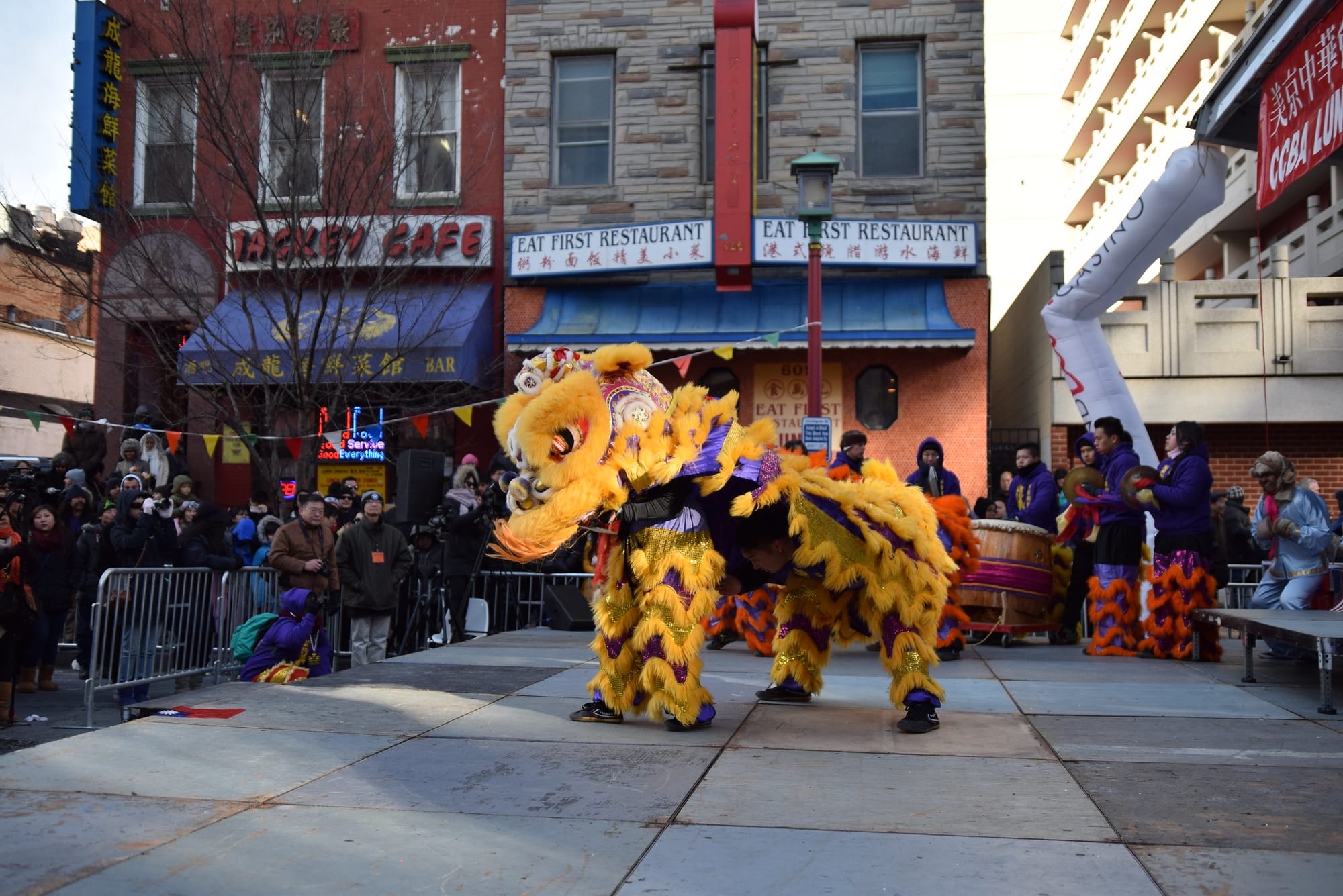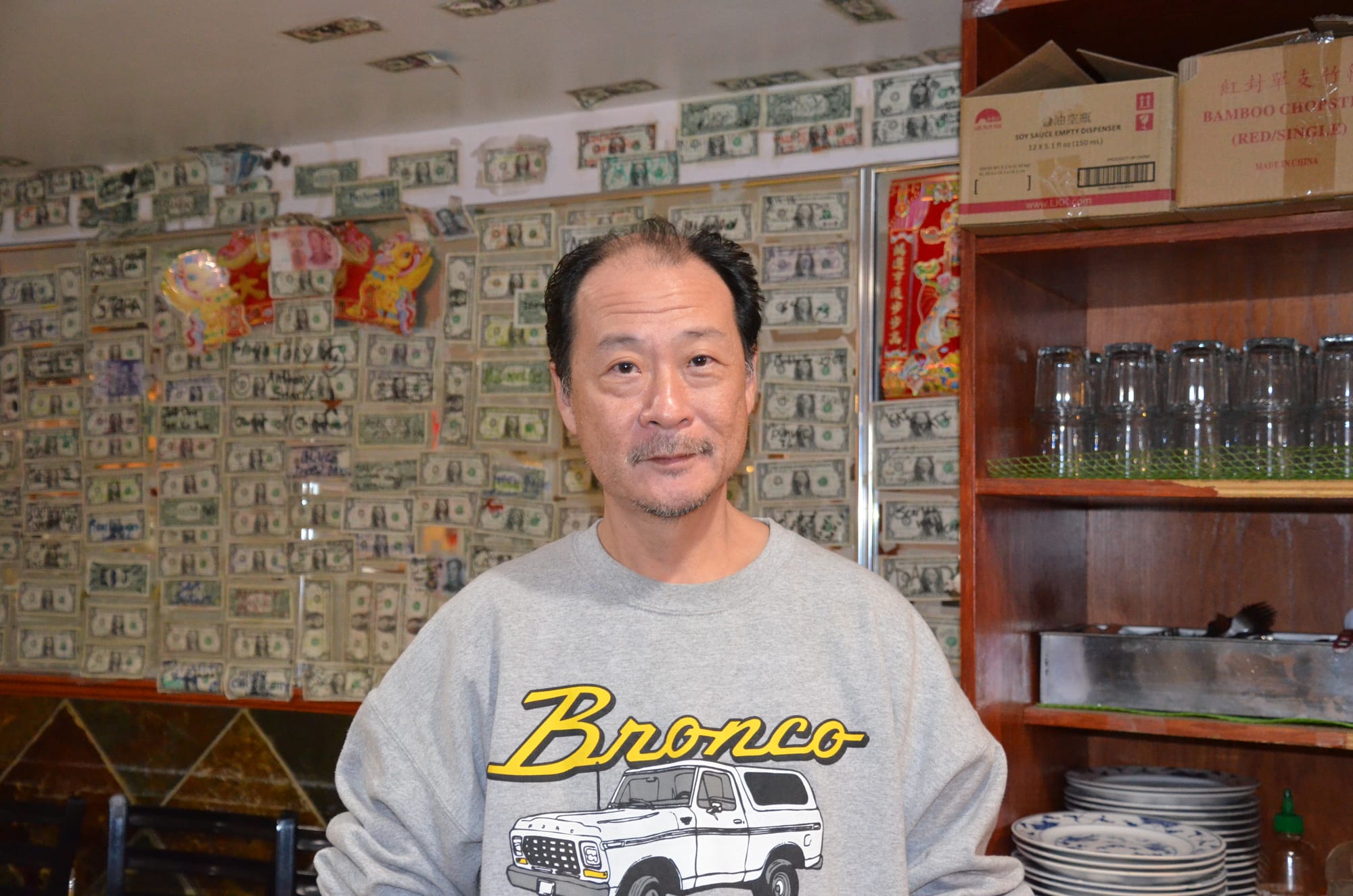What can be done about your expensive Pepco bill?
Financial assistance, energy audits, and avoiding third-party suppliers can help.
Jackey Cafe is the latest in a long list of losses for the neighborhood, as development and gentrification price out mom-and-pop shops and Chinese residents.

The last weeks at Jackey Cafe were tearful ones.
“The lady was holding me crying,” says Jackey Cafe owner Peter Ko, describing an interaction with a longtime patron during the restaurant’s last week of service. “She said, ‘Oh, you’re like my uncle now. How am I going to see you?’”
At the April 8 closing party for Jackey Cafe, over 40 people squeezed into the restaurant’s downstairs, longtime patrons mixed with anti-displacement activists mixed with family and friends. Guests served themselves from steaming trays of beef and snap peas and shrimp with noodles, while Ko played both uncle and waiter, alternating between recounting memories and serving drinks.
The shuttering marked the end of Jackey Cafe’s more than 40-year run in Chinatown. It’s the latest in a long list of losses for the neighborhood, which is fighting to hang on to the last of its legacy businesses as development and gentrification continue to price out mom-and-pop shops and Chinese residents. Ko made the decision to close the business after struggling with rent prices and the rising cost of food since the pandemic. He told The 51st that the choice “hurts a lot,” in part because Jackey was one of the last bastions of a neighborhood that barely exists anymore.
“Before Chinatown is more bigger. Now it's shrinking and small,” Ko says.
It’s common to hear talk about D.C.’s Chinatown being emptied of any actual Chinese heritage – a dead zone that revolves around the Capital One Arena and the visitors who flit in to watch a show or a sports game and then quickly head back out. And in fact, Chinatown has lost most of its Chinese residents. In 2010, there were 3,000 Chinese residents living there; in 2020 there were just 361, according to census data.
But activists with the Save Chinatown Solidarity Network say these losses make it more important than ever to nurture the remaining Chinese businesses in the area, and to make it possible for Chinese residents to stay in their homes. The Network was founded by artist and tenant’s rights activist, Shani Shih, to fight gentrification and displacement while preserving cultural heritage and community.

“Our demands are basically centered around the fact that there are clearly a lot of resources available for what the wealthy class envisions to be the future of Chinatown,” Shih says, referring to the city’s downtown revitalization plan unveiled in 2024 which aims to invest $400 million dollars over the course of five years. “We want affordable rents for businesses, affordable units for low income working class people. We want to make sure there are community spaces, provided by these developers, that the community can use.”
Ko also feels frustrated with what he says is a lack of support from the city. He believes D.C. could have done more to help him and other businesses like his stay open, including by providing more comprehensive help applying to relief programs. The city’s steadfast support of the arena also bothers Ko. In his eyes, it causes more issues than it brings in customers, and he wishes the city did more to alleviate the parking scarcity it creates.
"The District is dedicated to preserving Chinatown’s cultural identity by supporting its small businesses and long-time residents. Through the Mayor's Office of Asian and Pacific Islander Affairs' weekly in-language outreach, assistance with grants and licensing, and leadership in the Safe Commercial Corridor Hub, we provide hands-on support where it’s needed most," the mayor's office said in a statement to The 51t. "We’ve engaged with the Save Chinatown Solidarity Network and other stakeholders to ensure that all voices are heard."

Jackey Cafe opened in 1979, mostly out of necessity. “My father … started the restaurant because back then Chinese really no other option,” Ko said. “It's not like now [where] they got a lot of different choice.”
Ko inherited the restaurant from his parents in 2005. That year, he set out to expand it, transforming it from a carry-out only spot into a two-story restaurant that serves both Mandarin and Cantonese cuisine. The year he spent building out Jackey Cafe was laborious, but fulfilling. Ko completely redid the floor plan in order to create a more open dining room, and he installed every slab of drywall, every pipe, and every piece of wiring himself.
Jackey Cafe reopened its doors in 2006 with Ko and his sister Jackey – also the restaurant’s namesake – at the helm. Since then, it’s served a diverse crowd ranging from families to “industry people” as Joe Khalil, a bartender, refers to the late night crowd that often flocked to Jackey Cafe.
Starting in 2008 up until the pandemic, Khalil visited Jackey Cafe four or five times a week after his bar shifts. Over time, Ko and his family became “like family” to Khalil. He recounted attending the graduations of Ko’s children as well as his nieces and nephews, and celebrating Lunar New Year at the restaurant.
“Every time we came in, it felt like a second home,” he said. “They are Chinatown to me.”
Nico Sarris, another regular patron who attended the Cafe’s closing party, has also felt the sense of community created by late night dinners at Jackey Cafe. He recalls Ko often sending him home with food for his parents, or Jackey asking him to deliver food to a table during a busy dinner rush.
“There were times I didn’t even go out, but I’d still come down here at 2 a.m., just to be here,” he said. “Chinatown to me was these mom-and-pop places.” With the closure of so many of these restaurants, Sarris says, “Chinatown has lost its personality.”
Ko still remembers a time when Chinatown had a number of Chinese-owned restaurants as well as a coffee house, market, and gift shop. This change in the small business landscape has also disrupted Ko’s sense of community.
“Before, more Chinese, more helping each other,” he says. If he happened to run out of an ingredient, like bean sprouts, he could easily go next door and ask for help from a neighbor. “But now the business people, they don't even socialize,” he says.
Shih also became part of Ko’s community via food — she painted a mural outside Jackey Cafe recently to protest displacement and luxury development, and he’d bring her drinks and snacks as she worked. In her eyes, part of what is so frustrating about spots like Jackey Cafe closing is that there is plenty of city money to go around.
“Time and time again, you've seen across the country that actually the sort of myopic focus on corporate luxury commercial development erodes existing communities, and then creates very transient spaces that have no life, no culture,” Shih said, pointing to the recent opening of another fast food chain in Chinatown.
Ko misses when Chinatown used to be “more Chinese,” and he’s sad about having to give up. For Ko, the restaurant that he’s sunk so much time and energy, feels almost “like a kid.”
This story was updated with a statement from the mayor's office.
With your help, we pursue stories that hold leaders to account, demystify opaque city and civic processes, and celebrate the idiosyncrasies that make us proud to call D.C. home. Put simply, our mission is to make it easier — and more fun — to live in the District. Our members help keep local news free and independent for all: